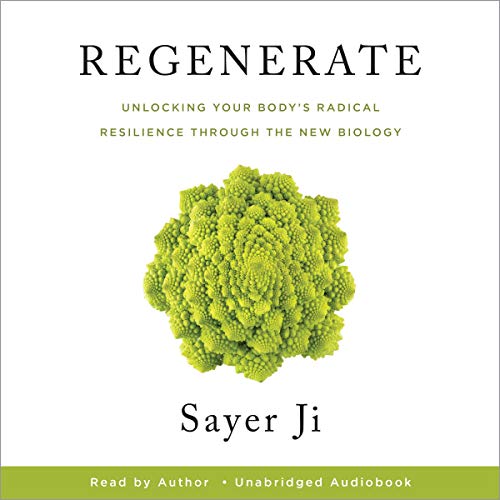Ginger: Nature’s Potent Alternative to Proton Pump Inhibitors for Heartburn Relief
 By GreenMedInfo Research Group
By GreenMedInfo Research Group
In the battle against heartburn and indigestion, could the humble ginger root provide a natural, safe, and effective solution that rivals the efficacy of conventional acid-blocking drugs?
Recent research has revealed that ginger extracts possess potent anti-ulcer and anti-Helicobacter pylori properties, outperforming common acid-blocking drugs like lansoprazole in inhibiting acid production. As a natural alternative with a wide range of health benefits, ginger offers a promising solution for those seeking relief from heartburn and indigestion without the adverse effects associated with proton pump inhibitors.
Ginger: Nature’s Potent Alternative to Proton Pump Inhibitors for Heartburn Relief
In the quest for relief from the discomfort of heartburn and indigestion, millions of people worldwide turn to proton pump inhibitors (PPIs) and other acid-blocking drugs. However, these medications come with a host of potential adverse effects, ranging from nutrient deficiencies to increased risk of infections and even gastric cancer.1 As the search for safer, natural alternatives continues, a recent study has shed light on the remarkable potential of ginger in outperforming these conventional treatments.
The study, published in the journal Molecular Research and Food Nutrition, aimed to compare the anti-ulcer and anti-Helicobacter pylori effects of ginger extracts against the PPI lansoprazole.2 H. pylori is a bacteria commonly implicated in the development of stomach ulcers. Researchers found that a specific fraction of ginger exhibited an impressive six to eight-fold greater potency in inhibiting acid production compared to lansoprazole.2
To assess acid production, the study measured the inhibition of gastric cell proton potassium ATPase activity, a key indicator of acid secretion. The ginger extract’s superior performance in this regard highlights its potential as a natural, cost-effective alternative to PPIs.2
But the benefits of ginger extend beyond its acid-blocking properties. The study also revealed ginger’s potent antioxidant effects, helping to protect lipids from peroxidation and prevent DNA damage.2 These findings suggest that ginger may offer a multi-faceted approach to promoting digestive health and preventing ulcers.
It’s important to note that while this study focused on specific ginger isolates, the whole ginger root has been used safely for centuries across various cultures. Ginger contains a proteolytic enzyme that is hundreds of times more potent than papain, found in papaya, and boasts a wide array of pharmacological actions, including antibacterial, antiviral, and antiparasitic properties.3
Regenerate: Unlocking Your Body’s Radical Resilience Through the New Biology
When considering the use of ginger for heartburn relief, it’s crucial to approach it holistically. Rather than reducing ginger to a mere pill or extract, incorporating whole ginger into a balanced, nutrient-dense diet, along with lifestyle modifications, may provide the most sustainable and effective path to digestive wellness.
While PPIs and other acid blockers may offer temporary symptom relief, they fail to address the underlying causes of heartburn and indigestion, such as poor diet, food intolerances, stress, and bacterial imbalances.1 By masking symptoms and disrupting the body’s natural acid production, these drugs can lead to a host of long-term health consequences.1
In contrast, ginger works in harmony with the body’s innate healing mechanisms, supporting digestive function and promoting balance. With its impressive array of health benefits and lack of significant side effects, ginger emerges as a promising natural solution for those seeking relief from heartburn and indigestion.
As with any dietary or lifestyle change, it’s essential to consult with a healthcare professional to determine the most appropriate approach for individual needs. However, the evidence supporting ginger’s efficacy in combating digestive issues cannot be ignored.
In a world where quick fixes and pharmaceutical interventions often take precedence over natural, time-tested remedies, the power of ginger serves as a reminder that nature holds the key to optimal health and wellness. By embracing the wisdom of traditional healing practices and supporting them with modern scientific research, we can unlock the full potential of this remarkable root and pave the way for a more holistic approach to digestive health.
For more information on the health benefits of ginger, visit our database on the subject here.
For more information on natural approaches to addressing GERD, visit our database on the subject here.
For more information on the toxicity of pharmaceutical proton pump inhibitors, visit our database on the subject here.
References
1. Fossmark, R., T. C. Martinsen, and H. L. Waldum. “Adverse Effects of Proton Pump Inhibitors–Evidence and Plausibility.” International Journal of Molecular Sciences 20, no. 20 (2019): 5203. https://doi.org/10.3390/
2. Siddaraju, M. N., and S. M. Dharmesh. “Inhibition of Gastric H+, K+-ATPase and Helicobacter Pylori Growth by Phenolic Antioxidants of Zingiber Officinale.” Molecular Nutrition & Food Research 51, no. 3 (2007): 324-32. https://doi.org/10.1002/mnfr.
3. Rahmani, A. H., F. M. Al Shabrmi, and S. M. Aly. “Active Ingredients of Ginger as Potential Candidates in the Prevention and Treatment of Diseases via Modulation of Biological Activities.” International Journal of Physiology, Pathophysiology and Pharmacology 6, no. 2 (2014): 125-36. https://www.ncbi.nlm.nih.gov/
The GMI Research Group (GMIRG) is dedicated to investigating the most important health and environmental issues of the day. Special emphasis will be placed on environmental health. Our focused and deep research will explore the many ways in which the present condition of the human body directly reflects the true state of the ambient environment.
Disclaimer: This article is not intended to provide medical advice, diagnosis or treatment. Views expressed here do not necessarily reflect those of GreenMedInfo or its staff.
Source: GreenMedInfo
This article is copyrighted by GreenMedInfo LLC, 2024
Visit our Re-post guidelines




